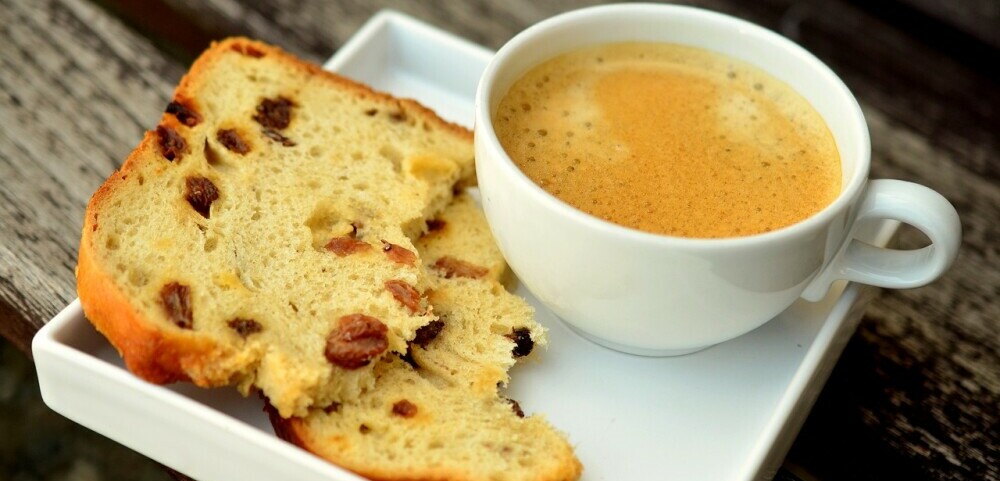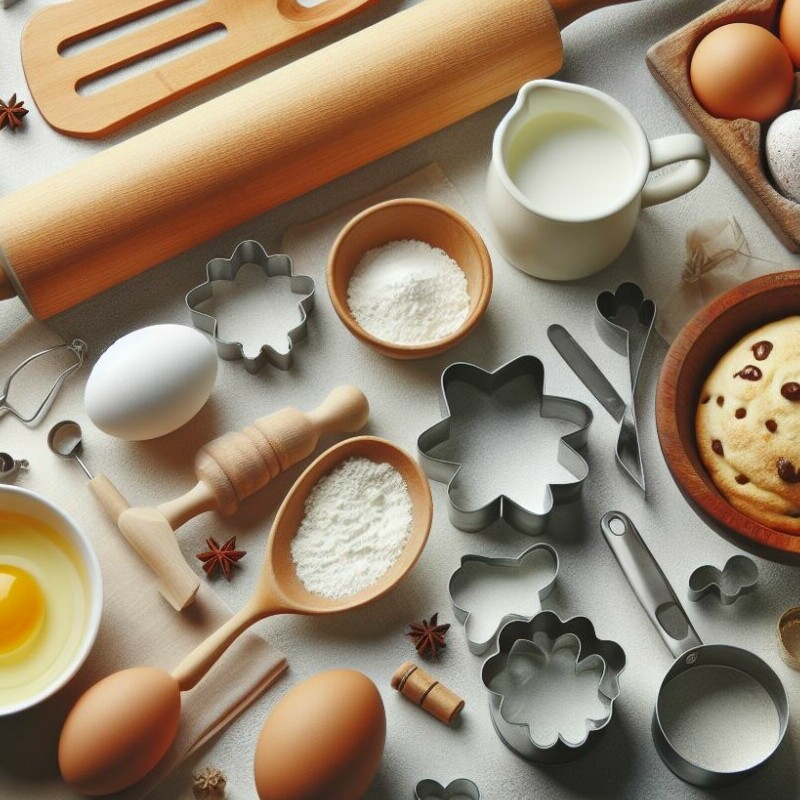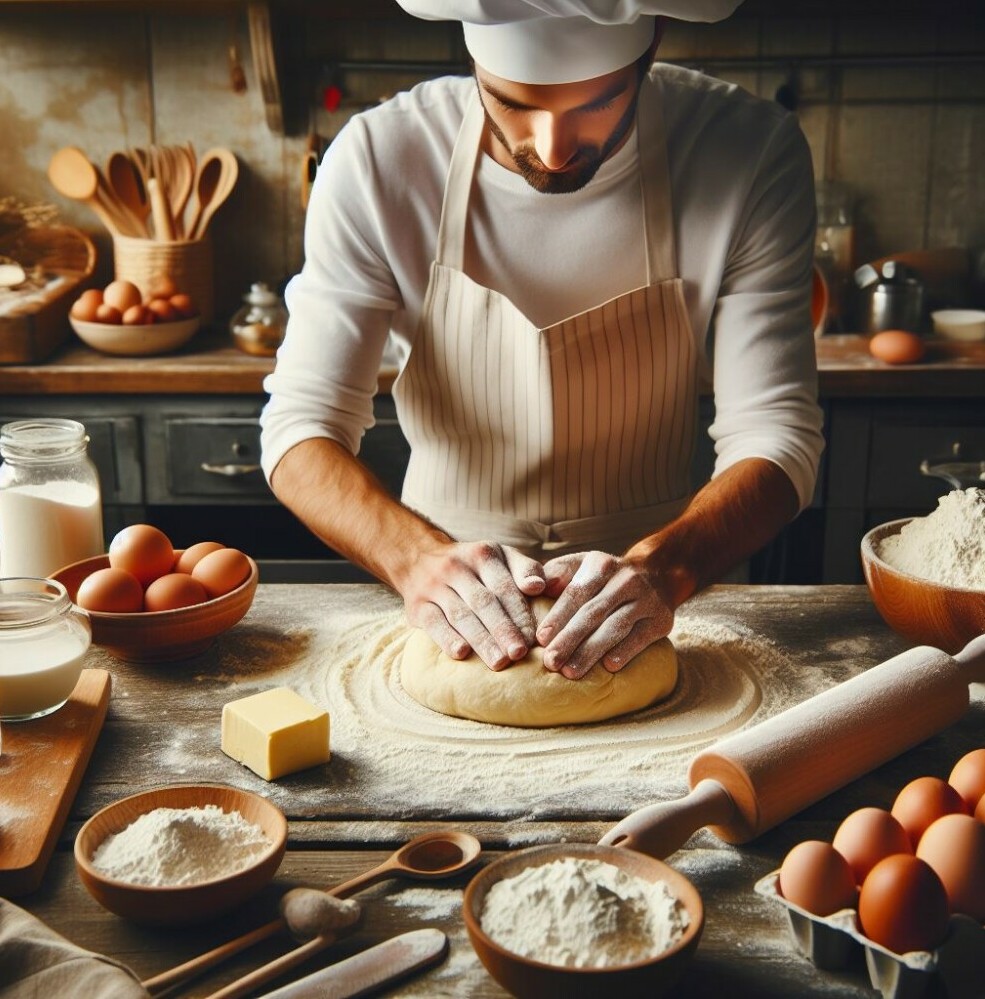
Do you like to bake? I love to bake, but you need the right tools to get the job done.
If you’re eager to dive into the world of baking or looking to upgrade your baking game, you’re going to find out about the basic building blocks you’ll need in your kitchen arsenal. Now this isn’t just about having fancy gadgets; it’s also about ensuring your beloved creations come out perfectly every time.
In my experience, investing in some good-quality baking tools is more than worth it. They make the process easier, more enjoyable, and can significantly improve the outcomes of your recipes. Plus, when you have the right tools, you’re setting yourself up for success right from the start, no matter if you’re a beginner or a seasoned pro.
Baking is as much a science as it is an art.
That’s why precise measuring is paramount. Accurate measurements are the backbone of baking, providing the consistency needed to produce quality baked goods every time. It’s one of those critical steps where ‘guesstimation’ just won’t cut it.
So what tools are we talking about here? You’re going to need measuring cups for bulk ingredients, measuring spoons for smaller quantities, and I’ll let you in on a little secret: a digital kitchen scale is the unsung hero in a baker’s toolkit. Its precision is unparalleled, and I’ll bet once you try it, you’ll never look back.
Now, with the scene set for the essentials, let’s zoom in and talk specifics. Up next, we’re going to explore each tool in more detail and discuss how to make them work the best for you in your baking adventures.
Measuring Up in the Kitchen: Cups, Spoons, and Scales

I’m going to let you in on a little secret: precision is your best friend in the kitchen, especially when it comes to baking. This isn’t just about guesswork; it’s a science. The right measurements can make or break your confections. To ensure you’re on the mark, let’s talk about measuring cups, spoons, and kitchen scales.
You’re going to find out about the difference between dry and liquid measuring cups – yes, there’s a difference! Dry measuring cups should be used for ingredients like flour and sugar. You fill them to the brim and level off the top for the perfect measure. Liquid measuring cups, on the other hand, are typically glass or plastic with a spout and measurements marked on the side. They’re designed to be filled to the exact line without spilling.
Now, here’s where many bakers pivot: a kitchen scale. If you want to up your baking game, consider investing in one. Why? Because they measure ingredients down to the gram. This means your recipes will turn out exactly as intended, time after time. It’s also way less clean up as you can often measure everything into one bowl.
Don’t worry too much about the plethora of measuring spoon sets out there. Just choose a set that is durable and has clear markings. Having a range from a quarter teaspoon up to a tablespoon can cover all your baking needs.
Remember, consistency is key. You can always adjust your approach down the road, but starting with exact measurements will set a solid foundation for your baked goods. Choose something that resonates with you, whether it’s a set of spoons that feel good in your hand, or a digital scale that’s easy to read. Those perfect cookies aren’t far away.
Mixing and Prepping: Whisks, Spatulas, and Bowls
Imagine baking as a symphony, and every tool you use plays a crucial part in creating a harmonious outcome. In the grand performance of mixing and prepping, three maestros take the stage: whisks, spatulas, and bowls. Now let’s look at how each of these tools contributes to the music of baking.
Choosing the right whisk can make a world of difference. This is one of my most favorite tools Every kitchen needs a set of these. There are different types for various tasks: balloon whisks for aerating, flat whisks for roux and gravies, and silicone coated whisks that are safe for non-stick cookware. Using the correct whisk means airier whipped cream and fluffier egg whites. It’s not just about blending ingredients; it’s about infusing them with the right texture.
Then there’s the unsung hero of any baking station: the spatula. Silicone spatulas, in particular, have proven indispensable. They gracefully handle heat, don’t stain or retain flavors, and bend just enough to scrape every bit of batter from the bowl. What’s more, a spatula doubles as a folding tool, gently combining ingredients where a whisk would be too aggressive.
Speaking of bowls, let’s not underestimate their significance. The material of your mixing bowl affects temperature control and can influence your baking results. Glass bowls are great for monitoring your mixture, but they can retain heat, which might not be ideal for dough that needs to stay cool. Metal bowls are lighter and excellent for managing temperature changes, while plastic variants are affordable and durable but might hold onto stains and odors over time.
Each tool is vital, and choosing the right one is part of the journey to becoming a better baker. But mastering the roll and cut of dough is another adventure. In the next section, ‘Rolling in Dough: The Essentials of Rolling Pins and Mats,’ you’ll learn how the right rolling pin can transform your baking, and why a good mat might just become your countertop’s best friend.
Rolling in Dough: The Essentials of Rolling Pins and Mats
Have you ever wondered why your pie crusts and cookies sometimes end up too thick or too thin? Much of that has to do with the rolling pin you’re using. I’m going to guide you through choosing the proper rolling pin for your baking needs.
You’re going to find out about the various types of rolling pins and what makes each special. For instance, a straight French pin without handles might be perfect for delicate pastry dough, while a heavy marble pin could be your best bet for cold buttery doughs.
Now, let’s talk about the unsung hero of the baking mat – the silicone baking mat. These mats not only prevent sticking without added flour, but they also come with guides to help you roll your dough to the perfect thickness.
Choose something that resonates with you when it comes to maintenance. Wood pins require hand washing and occasionally oiling to keep them in top shape, while silicone and marble can often go right into the dishwasher.
You can always adjust your approach down the road, but starting off with the right rolling pin and mat will set you on the path to consistent and professional-looking baked goods. It’s all about finding tools that not only enhance your baking but make the process more enjoyable too.
The Finishing Touch: Piping Bags, Cookie Cutters, and Decoration Tools
I’m going to wrap this up by focusing on the creative end of baking – adding those beautiful final touches that turn a baked good into a showstopper. It’s not just about taste; presentation plays an enormous role in how we experience food. If you’ve ever seen a pastry chef decorate a cake, you know just how mesmerizing it can be.
Piping bags and their various tips allow you to add intricate details and perfect swirls to cakes and cupcakes. I’m here to help you understand that with the right tools, you can achieve those same professional results at home. Whether you’re crafting rosettes or writing names, having a set of diverse piping tips is going to up your decorating game significantly.
Now, cookie cutters may seem straightforward, but they’re a kitchen staple for a reason – they consistently deliver shape and form, which is vital for that professional look. Choose something that resonates with you, from simple circles to intricate seasonal shapes, but don’t overlook the quality. Metal cutters often provide sharper outlines than their plastic counterparts, so keep that in mind for your next purchase.
And it’s not just about the baking itself; decorating tools such as palette knives, fondant smoothers, and decorating combs offer you opportunities to refine and add texture to your creations. These are the tools that allow you to add those final, personal touches that make your baked goods truly unique.
I really hope that throughout this article, you’ve picked up valuable insights into the essential baking tools that can transform your experience in the kitchen. Your first attempt with these tools doesn’t need to be perfect; remember, you can always adjust your approach down the road. Baking is a journey, after all, and with these tools in your arsenal, you’re well-equipped to embark on making masterpieces that taste as good as they look.
Kathie
As an Amazon. Associate I may earn money from qualified purchases.
